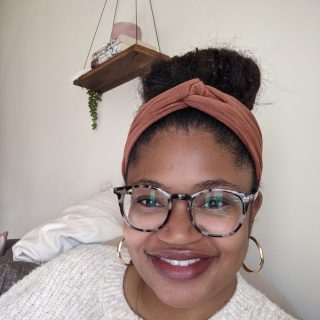“If you don’t feel comfortable talking about sex, you’re not ready to have sex.”
My mom told me this in sixth grade, shortly after an incredibly biologically accurate description of periods and how babies are made.
But for students who don’t have a registered nurse as a mom, sex education in public school could be the first and possibly only scholastic conversations about sex that they get. But a deep dive into the curriculum for school districts’ sex education shows a lack of information for many students.
Health education is only required until ninth grade in North Carolina, which means that most students will get their last course on sex before they become sexually active. According to a 2017 report by the Demographics and Health Surveys Program, most people have their first sexual intercourse between 15-19 years old. That means that students don’t have a reliable resource for learning more about sex and safety after they start having sex.
At the national level, sex education is funded through the Dept. of Health and Human Services, rather than the Dept. of Education. In 2020, DHHS set its strategic plan called Healthy People 2030 which includes the sexual health of adolescents. One of the objectives of the plan is to increase the proportion of adolescents who get formal sex education before they turn 18. Formal sex education includes focuses on delaying sex, using birth control methods and preventing STIs, including HIV/AIDS. This is the minimum instruction under North Carolina law.
However, a 2021 study by the Guttmacher Institute, a research and policy organization committed to advancing sexual and reproductive health and rights worldwide, found that only half of students in the US are receiving formal sex education that meets the goals set by the strategic plan.
What does sex education look like in NC?
In North Carolina, the state Board of Education holds most of the power to set standards, objectives and guidelines for sex education, otherwise known as “healthful living.” The standards were last updated in 2016 to include the requirements from 2015 legislation for counselors to discuss sex trafficking.
According to the standards, most discussions about puberty begin in 4th grade. Before then, the interpersonal communication and relationships standards focus a lot on bullying. Students get the bulk of their sex education as part of their “healthful living” curriculum between 6th and 9th grade. North Carolina’s healthful living education also includes objectives on mental and emotional health; personal and consumer health; nutrition and physical activity; and alcohol, tobacco and other drugs.
The NC Dept. of Public Instruction’s standards use the “abstinence until marriage” model for sex education. It also sets standards for teachers to discuss sexually transmitted infections, bodily autonomy as well as sexual harassment and assault. Students are taught about awareness and the power of the word “No.”

Martina Norwood has a daughter in 7th grade at Western Guilford Middle School. She said that she tries her best to answer any questions her daughter has about sex but doesn’t always have the answers.
“The questions started pretty early with her,” Norwood said. “I was surprised at how soon I was getting questions [about sex]. “Sometimes it feels like she knows more than I do about gender identity. I have some control over what my kid is exposed to but no control over what other kids are exposed to and what conversations they have with my kid.”
Norwood said she was surprised but pleased at the education her daughter got about consent and sexual harassment.
“When I was in school, they’d split the girls and the guys up to have the conversation about sexual harassment,” she said. “I never knew what they told the guys, but it seemed to be all on the girls to keep from being harassed or assaulted, never the guy. For my daughter, they didn’t split them up which I thought was good. Consent is for everybody.”
Barriers to comprehensive sex education
Although there have been some changes to sex education in the last few decades, there have also been attempts to create barriers to sex education. In 2019, legislation was introduced to the State House and Senate to increase opportunities for parents to object to sex education, both of which died in committee. Currently, Guilford County Schools and Winston-Salem Forsyth County Schools notify guardians of reproductive health subject matter and allow them to withdraw their student from the programs by writing to school principals.
Additionally, some school districts, such as Winston-Salem Forsyth County Schools, partner with community resources for additional information which can include crisis pregnancy centers, like Salem Pregnancy Care Center. Crisis pregnancy centers often deliver manipulative or false information about abortions and are becoming increasingly more federally funded to deliver abstinence-only instruction.
The need for comprehensive sex education continues to be seen nationally. Although teen pregnancy has been on the decline, 15-24 year olds account for more than half of all new STIs, despite being about a quarter of the sexually active population. Young people under the age of 25 accounted for 21 percent of new HIV infections in 2018, with rates increasing among Black and Latino young men who have sex with men, according to the CDC.

Other than lowering the rates of unwanted teen pregnancy and the transmission of STIs, comprehensive sex education has the ability to save lives, particularly of those who identify as LGBTQ+. The Trevor Project reports that LGBTQ+ youth are 23 percent less likely to attempt suicide when schools include education on LGBTQ+ subjects or people, even though only 11 states (and Washington, D.C.) require sex education that includes LGBTQ+ identities.
The Sexuality Information and Education Council of the United States, or SIECUS, an advocacy group for comprehensive sex education, noted in their state profiles that North Carolina does a good job with medically accurate, evidence-based sex education, but there is more to be done to make it more inclusive and culturally appropriate.
How LGBTQ+ students are left out of sex education
Efforts such as the “Don’t Say Gay” bill, officially called Parental Rights in Education bill which passed the state Senate in Florida, as well as the Texas governor’s decision to order investigations of parents who allow their children to undergo gender-affirmation surgery, have drastically impacted LGBTQ+ youth across the nation. Additionally, lawmakers in Iowa and South Dakota have barred trans girls and women from competing on same-gender sports teams. In addition to legislation that infringes on the rights of LGBTQ+ youth, non-inclusive sex education is just another way that trans youth feel ostracized.
Jennifer Ruppe, executive director of Guilford Green LGBTQ Center in Greensboro, said LGBTQ+ youth have been the most active at the center since the pandemic because they’ve been heavily isolated by being away from school and their communities. Through weekly activities and a wealth of resources, Guilford Green attempts to build that community and address the needs of LGBTQ+ youth, including sex education.
“To think that youth are not going to be sexually active, there is just no evidence to support that,” Ruppe said. “Comprehensive and consent-based sex education will help them understand how to have healthy relationships, protect themselves from harm or unwanted pressures. It’s especially important for LGBTQ+ youth because if you only hear things that are from a heterosexual cisgender perspective, you don’t see yourself in that and you might not see how those things apply to you.”
Amelia Mattocks, a public health educator and parent of three elementary-age children, said that her oldest child recently had the fifth grade “human growth and development” (puberty) education, which only lasted one hour and is highly gendered.
“They use a curriculum that has a girl version and a boy version,” she said. “It also continues to reinforce a binary of gender and sexuality. I believe that inclusive sex education would require a complete overhaul of the current curriculum. When we have these conversations and treat children as whole people, they are less likely to do harm to themselves and more likely to practice safe sex. Comprehensive sex education will save these children’s lives.”
Ruppe said the center recently partnered with the Children’s Home Society of North Carolina’s consent education program to talk to LGBTQ+ students at the center.
“It will help youth in the future if they don’t have any sex trauma into adulthood that comes from just not knowing,” Ruppe said.

Guilford Green has also partnered with Planned Parenthood to fill in some of the gaps of public-school sex education for LGBTQ+ youth. North Star LGBTQ Center in Winston-Salem has also partnered with Planned Parenthood on sex education.
“I think a lot of parents probably don’t know what their kids are being taught in school, particularly in this time of political discord,” said North Star vice board chair Deb Marke. “If schools aren’t teaching abstinence-only, then it’s a safe bet that they are only teaching heterosexual, cisnormative sex. It’s really crucial that people have evidence-based and actual awareness instead of leaning into fears.”
Marke said North Star is also looking into starting programs for parents of LGBTQ+ youth to keep the lines of communication open between the parent and the child and be a resource for both.
“There so many families who wish they had the tools to talk about some of these things with their kids but they may not feel like they have the language to be able to,” said Marke. “We live in a society where sex sells everything, but somehow we’re too afraid to have open conversations around it.”
Norwood said she hopes her daughter will keep coming to her with the questions that she has as she heads into her teenage years and hopes to be able to teach her daughter what she thinks is important to know.
Something Norwood was pleased to see as part of Guilford County’s sex education was the discussion about healthy and unhealthy relationships. In addition to bodily autonomy, Norwood said that her daughter learned this year about how to identify relationships that could be harmful.
“I think she really got good information out of that this year,” she said. “[Students] see so many relationships on TV or TikTok and sometimes don’t really have a gauge of right and wrong in relationships so I’m really glad they talk about that now in sex ed.”
Norwood said that’s where she comes in for her daughter.
“I think a lot of that is up to me,” she said. “Parents shouldn’t expect schools to teach their kid every single thing, especially about sex. There are so many different layers to that and I don’t think it’s realistic to expect the school to go over every bit of it.”
Join the First Amendment Society, a membership that goes directly to funding TCB‘s newsroom.
We believe that reporting can save the world.
The TCB First Amendment Society recognizes the vital role of a free, unfettered press with a bundling of local experiences designed to build community, and unique engagements with our newsroom that will help you understand, and shape, local journalism’s critical role in uplifting the people in our cities.
All revenue goes directly into the newsroom as reporters’ salaries and freelance commissions.


Leave a Reply